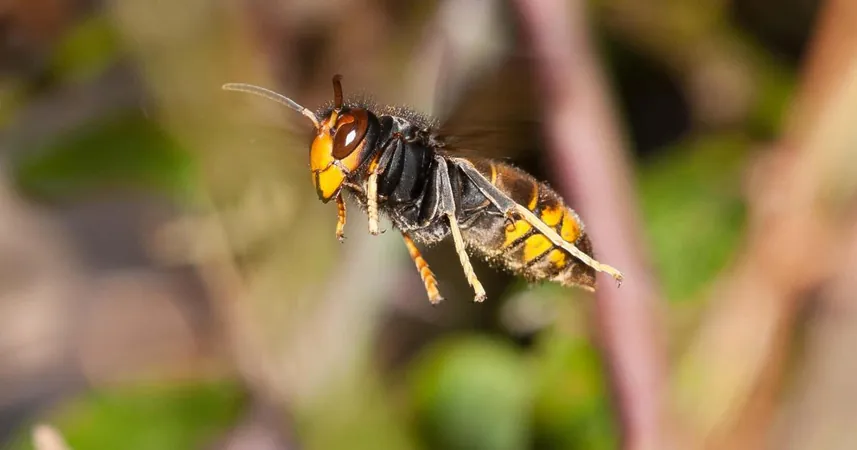
Revolutionary Sound Detection System Fights Back Against Invasive Hornets to Save Honeybees!
2025-04-06
Author: Jacob
In a groundbreaking effort to protect vulnerable honeybee populations, scientists from Nottingham Trent University have developed an innovative sound detection system that identifies the ominous presence of the invasive Asian hornet. This formidable predator can decimate up to 50 bees daily, while also inducing stress on honeybee colonies, forcing them to limit foraging and jeopardizing their food reserves for the critical winter months.
Utilizing low-cost microphones and a sophisticated algorithm, researchers have successfully differentiated the distinct hovering sounds of Asian hornets from the buzzing of honeybees and surrounding environmental noise. The findings reveal that Asian hornets consistently produce recognizable sounds while hovering—behavior unique to them, as honeybees generally do not hover for prolonged periods.
The exciting prospect of this technology involves positioning the detection system in apiaries, enabling beekeepers to receive real-time alerts directly on their smartphones. This immediate notification allows swift intervention to combat the threat of hornets, minimizing the stress inflicted upon honeybee colonies before it escalates.
Collaborating with scientists from the University of Coimbra in Portugal and Ghent University in Belgium, the Nottingham Trent team achieved a remarkable detection accuracy of nearly 100% over three seasons at a designated university apiary. These results underscore the potential for this system to revolutionize beekeeping practices, providing unprecedented support to farmers and environmental stewards alike.
Originating from Southeast Asia, the Asian hornet made its way to France approximately 20 years ago, likely hitching a ride in cargo. Since then, it has rapidly expanded across Europe, wreaking havoc in countries like France and Italy. The infestation problem reached the UK in 2016, and the latest reports indicate 44 confirmed sightings in 2024, primarily concentrated in Kent and East Sussex. Thankfully, a proactive response strategy focusing on eliminating hornets and their nests has curtailed their spread in Britain thus far.
Lead researcher Dr. Harriet Hall highlights the urgent need to address the disruptive impact of invasive species like the Asian hornet, stating, "Our native honeybee hasn’t evolved alongside this predator, leading to a vulnerability in their defenses." She emphasizes that the ability to detect the presence of Asian hornets early on is crucial for beekeepers, who can then implement protective measures quickly.
Dr. Martin Bencsik, a physicist involved in the study, points out the significance of swift identification methods, saying, "Despite some overlapping sound characteristics between honeybees and hornets, the distinct features of their hovering sounds create an excellent opportunity for this detection technique."
As the battle against invasive species intensifies, this innovative sound detection system shines as a beacon of hope for the future of honeybees, crucial pollinators in our ecosystem. The research findings were recently published in *Computers and Electronics in Agriculture*, making a compelling case for surveillance technologies in wildlife management and conservation efforts.
Stay tuned as we uncover more fascinating developments in the fight against invasive species!









 Brasil (PT)
Brasil (PT)
 Canada (EN)
Canada (EN)
 Chile (ES)
Chile (ES)
 Česko (CS)
Česko (CS)
 대한민국 (KO)
대한민국 (KO)
 España (ES)
España (ES)
 France (FR)
France (FR)
 Hong Kong (EN)
Hong Kong (EN)
 Italia (IT)
Italia (IT)
 日本 (JA)
日本 (JA)
 Magyarország (HU)
Magyarország (HU)
 Norge (NO)
Norge (NO)
 Polska (PL)
Polska (PL)
 Schweiz (DE)
Schweiz (DE)
 Singapore (EN)
Singapore (EN)
 Sverige (SV)
Sverige (SV)
 Suomi (FI)
Suomi (FI)
 Türkiye (TR)
Türkiye (TR)
 الإمارات العربية المتحدة (AR)
الإمارات العربية المتحدة (AR)